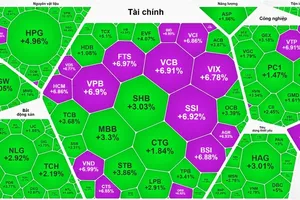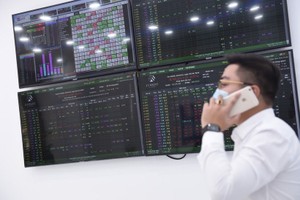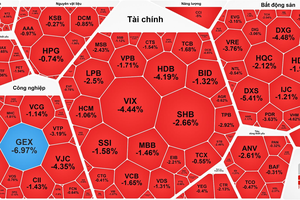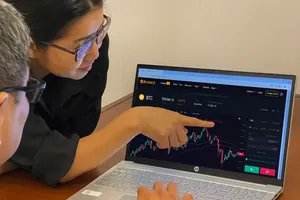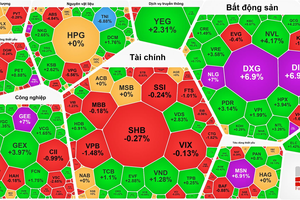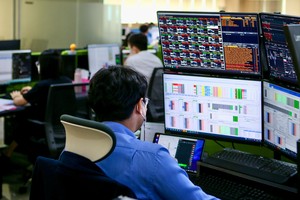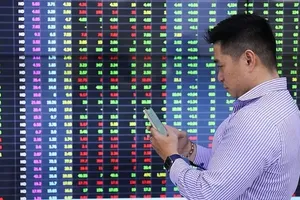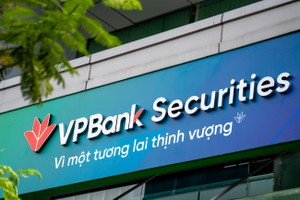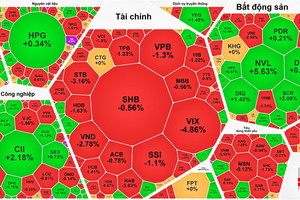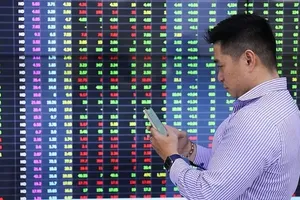This process of eliminating low-quality stocks enhances transparency in business operations and protects investors.
Widespread delisting due to financial losses
Several factors have contributed to the delisting, including sustained financial losses, negative equity, accumulated losses exceeding charter capital, non-compliance with disclosure requirements, and auditors declining to express opinions on financial statements. Many of the affected companies are large corporations.
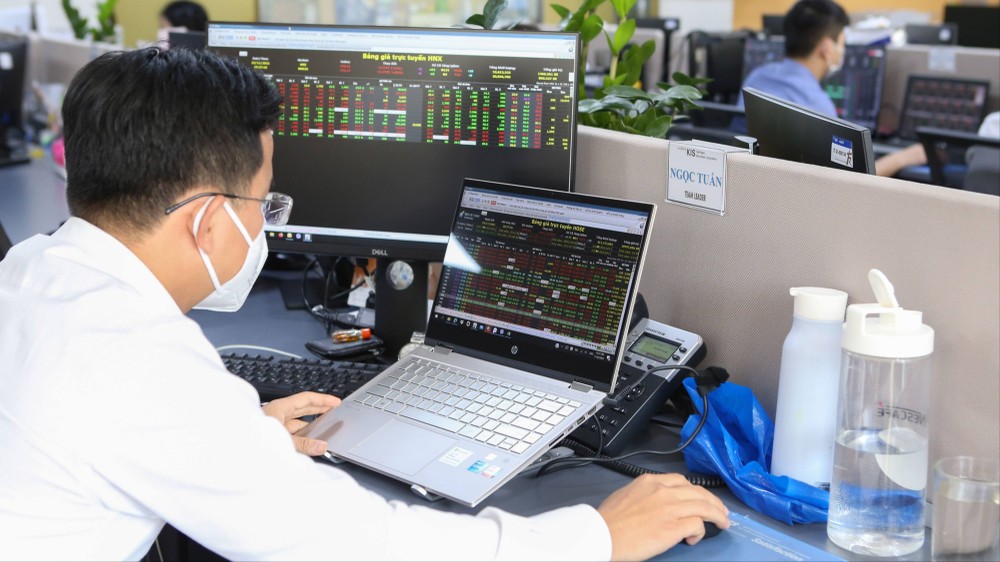
In September, HoSE announced its decision to delist HBC shares of Hoa Binh Construction Group JSC as of September 6, requiring the company to move to the UpCOM exchange. In the construction industry, Hoa Binh Construction Group JSC is a key player, involved in numerous large-scale investment projects, particularly in the development of apartment buildings.
However, following the downturn in the real estate sector since the pandemic, Hoa Binh Construction Group JSC has faced poor business performance. According to audited financial statements for three consecutive years (2021, 2022, and 2023), the company recorded losses of nearly VND1.12 trillion, VND3.58 trillion, and VND1.1 trillion, respectively, with accumulated losses exceeding the actual contributed charter capital.
According to the 2023 audited financial report, the company reported accumulated losses exceeding VND3.24 trillion, while its charter capital stood at over VND2.74 trillion.
A similar case is seen with HNG shares belonging to Hoang Anh Gia Lai Agricultural JSC - HAGL Agrico, once a prominent name in the agricultural industry in Vietnam, Cambodia, and Laos.
After facing persistent financial struggles, HAGL Agrico was acquired by billionaire Tran Ba Duong (Thaco), but the situation remained unchanged. Due to three consecutive years of losses, HAGL Agrico was delisted from HoSE and moved to the UpCOM exchange.
Other companies delisted since the start of the year include Chuong Duong Beverage JSC (SCD), delisted by HoSE after three years of continuous losses and negative equity; Da Nang Plastics JSC (DPC), delisted by HNX due to accumulated losses exceeding its actual charter capital; and Pomina Steel Corporation (POM), delisted for poor business performance and delayed submission of audited financial reports.
The Securities Market Development Department under the State Securities Commission clarified that mandatory delisting is in line with the Securities Law and serves the important purpose of ensuring a fair and transparent investment environment.
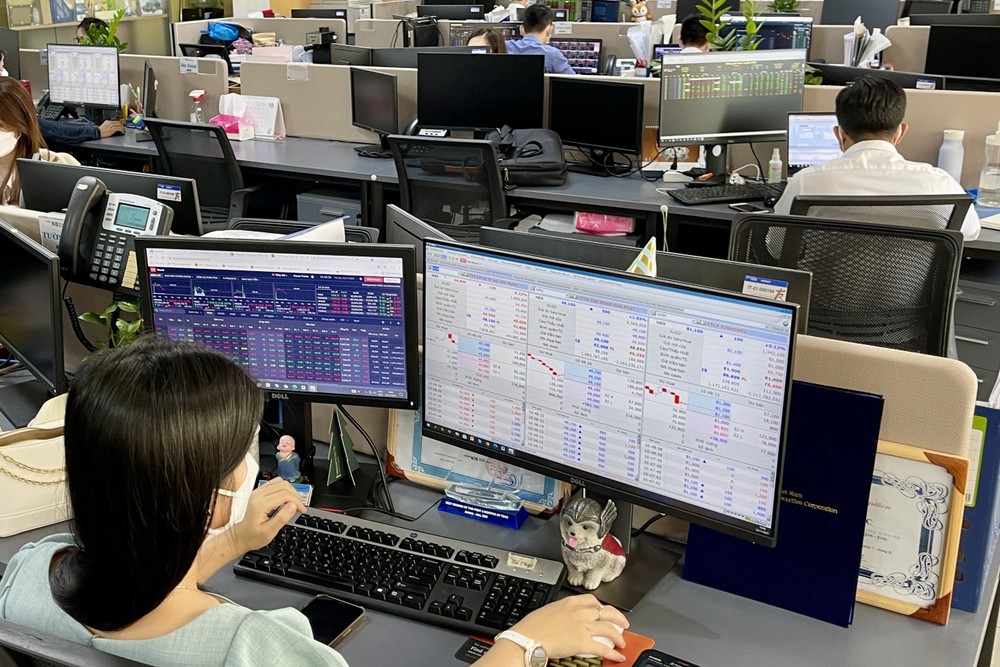
"Investors should be cautious when selecting stocks, evaluating the company’s adherence to legal regulations, particularly securities laws. They should also be mindful of the legal compliance of the company’s management to avoid potential risks," recommended a representative from the Securities Market Development Department.
Is Vietnam Airlines an exception?
Earlier this year, HoSE listed three stocks—HBC, HNG, and HVN (Vietnam Airlines JSC)—as at risk of delisting. However, while HBC and HNG have been delisted, HVN remains under trading restrictions (still trading on HoSE but only in afternoon sessions). This discrepancy has raised concerns among investors about the fairness in the enforcement of legal regulations.
Vietnam Airlines has recorded losses for four consecutive years. Specifically, the airline reported losses of VND11.178 trillion in 2020, VND13.279 trillion in 2021, and VND11.223 trillion in 2022. According to the 2023 audited consolidated financial report, despite some improvement in its business results, Vietnam Airlines still reported a loss of VND5.631 trillion, marking its fourth consecutive year of losses. The airline’s accumulated losses have reached VND41 trillion, significantly exceeding its charter capital, leaving it with negative equity of over VND17 trillion.
A legal expert from an investment fund pointed out that, under current regulations, HVN meets all three conditions for mandatory delisting. Specifically, it has posted losses for three consecutive years, its accumulated losses exceed its actual charter capital, and its latest audited financial report shows negative equity. According to these regulations, HVN should be delisted from HoSE and moved to the UpCOM exchange.
Regarding HVN shares, a representative from HoSE informed Sai Gon Giai Phong Newspaper that the exchange has followed the proper procedures within its authority and has reported the matter to higher authorities, awaiting guidance on the next steps.
The State also holds more than 86 percent of Vietnam Airlines’ shares. A delisting from HoSE would compel certain funds and foreign investors, who are only permitted to invest in stocks on official exchanges, to sell their holdings.
As a result, Vietnam Airlines relies on the introduction of a “special case” provision on which regulatory authorities have sought public input. Earlier in 2024, the State Securities Commission released a draft decree amending and supplementing certain provisions of Decree 155/2020, which details the implementation of the Securities Law.
The draft introduces a new clause: “In special cases, the Government may consider and decide to maintain the listing.”
“This provision could be the ‘lifeline’ that allows HVN shares to remain listed on HoSE. However, since the amended decree has not yet been enacted, HVN’s continued listing does not comply with current legal regulations, failing to ensure fairness and consistency in the application of the law,” commented a legal expert from an investment fund.
